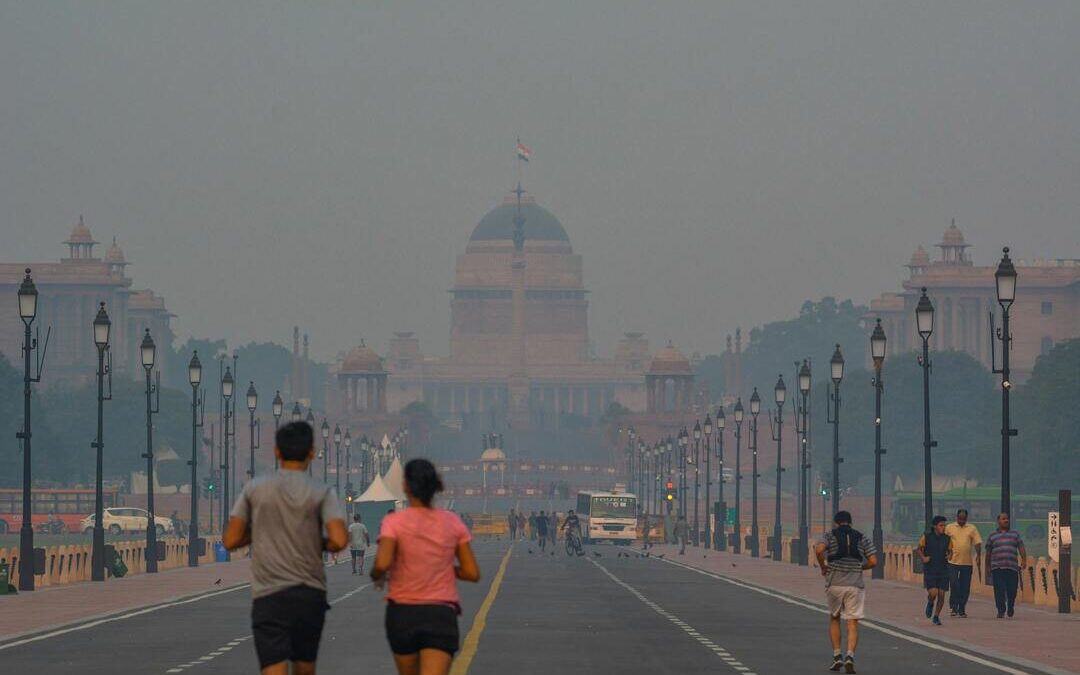Delhi’s Air Quality Improves, Authorities Ease Stage-III Restrictions Under GRAP
Delhi lifts Stage-III air pollution restrictions as AQI improves, urging citizens to follow ongoing GRAP measures to maintain cleaner air.
Authorities in India’s National Capital Region on Sunday announced the revocation of Stage-III restrictions under the Graded Response Action Plan, citing a steady improvement in air quality levels.
The Stage-III restrictions are enforced when the Air Quality Index is in the “severe” category and ranges from 401 to 450. The measures include prohibiting construction activities, restrictions on industrial operations and a ban on brick kilns, stone crushing and hot mix plants.
The restrictions also encompass a ban on the plying of BS-III petrol and BS-IV diesel vehicles, closure of non-essential activities, and promoting public transport and carpooling.
The decision, effective immediately, was made after the region’s Air AQI showed consistent signs of improvement, buoyed by favorable meteorological conditions.
The Commission for Air Quality Management oversees the implementation of GRAP measures in the NCR and convened a meeting with its sub-committee to assess the latest air quality data.
Delhi’s average AQI, which had been in the “very poor” category earlier this week, improved significantly over the day. By 5 p.m., the AQI had dropped to 335, down from 348 recorded earlier in the day, according to Central Pollution Control Board data.
Favorable Weather and Declining Pollution
Meteorological forecasts from the India Meteorological Department and the Indian Institute of Tropical Meteorology predict that Delhi’s AQI will likely remain in the “poor” category in the coming days, bolstered by better wind speeds and favorable weather conditions.
While Stage-III restrictions have been lifted, all measures under Stages I and II of GRAP will remain in effect.
Authorities have urged agencies to intensify monitoring and enforcement to prevent backsliding in air quality. Construction sites and industrial units shuttered for violations will not be allowed to resume operations without explicit permission from the CAQM.
“Strict vigil will be maintained, and measures under Stages I and II will be implemented rigorously to ensure AQI levels do not rise again,” the CAQM said in a statement.
The sub-committee also signaled that it would continue to monitor the air quality closely and take further action as needed.
Citizen Responsibility Amid Ongoing Winter Challenges
Despite the relaxation of restrictions, authorities emphasized the need for public cooperation, especially during the winter, when pollution levels spike due to stagnant weather conditions.
Residents have been asked to follow the Citizen Charter under GRAP, which includes measures such as minimizing vehicle use and avoiding activities contributing to air pollution.
Delhi, often ranked among the world’s most polluted cities, faces annual hazardous air quality bouts driven by industrial emissions, vehicular traffic, and seasonal crop-burning practices in nearby states.
GRAP, introduced in 2017, provides a framework for escalating restrictions to curb pollution during severe episodes.
While Sunday’s announcement marks a reprieve for residents and businesses affected by Stage-III restrictions, the CAQM’s decision underscores the fragility of Delhi’s air quality improvements.
As the region grapples with long-term pollution challenges, the focus remains on balancing environmental imperatives with economic and social considerations.
Also Read:
Toxic Smog Engulfs New Delhi as Air Quality Hits ‘Severe’ Levels Ahead of Winter

